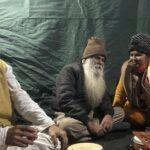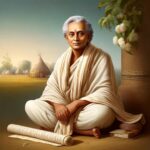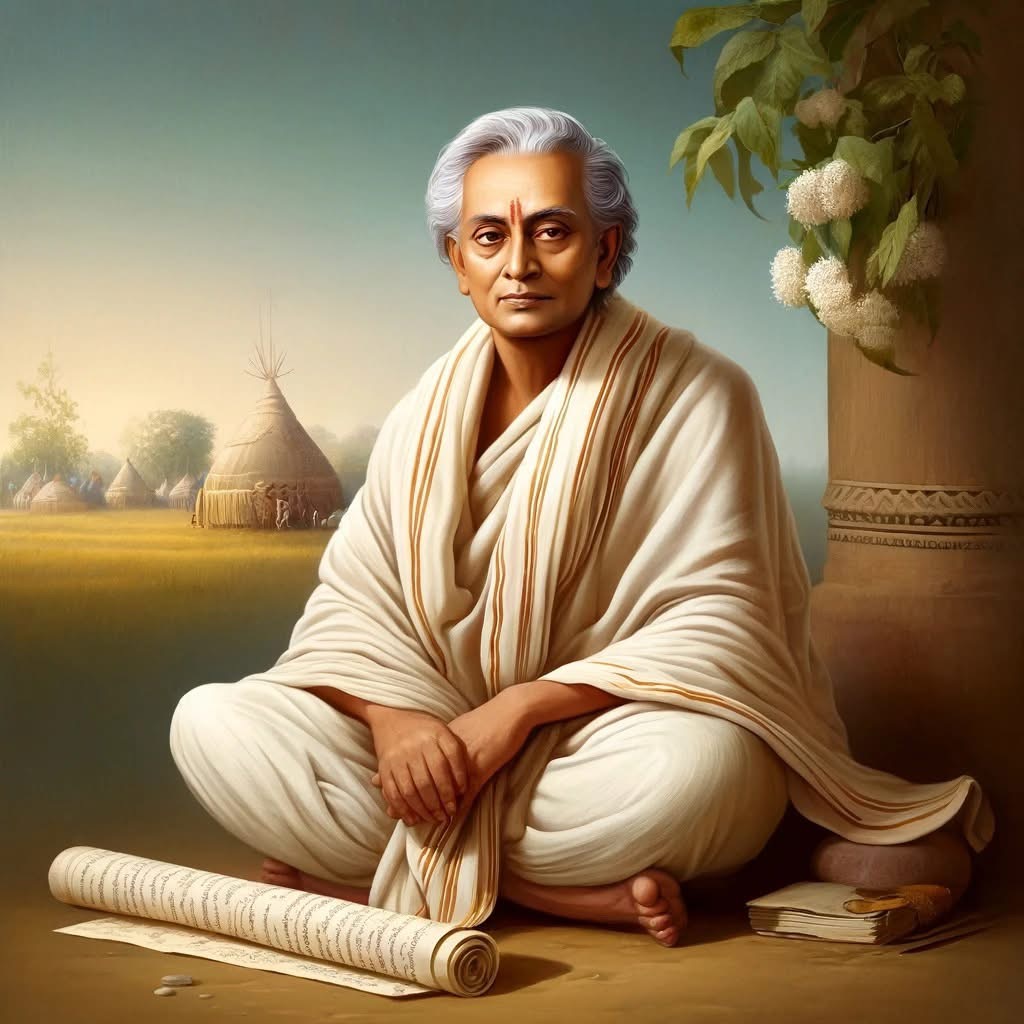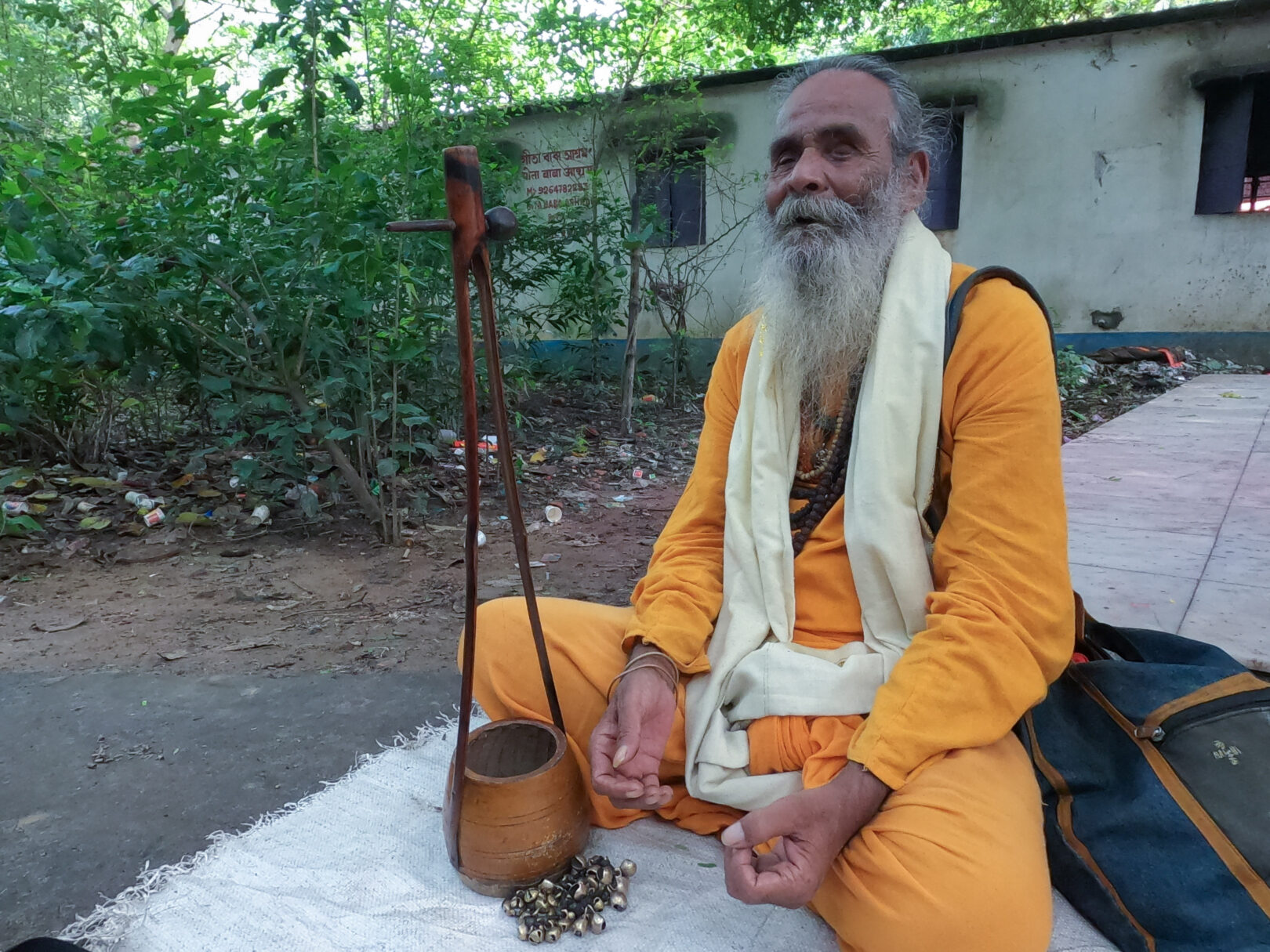🌿 Neelkantha Mukhopadhyay: The Last Legend of Bengali Kirtan and Krishna Jatra 🎶
In the vast and soulful realm of Bengali Baul songs and folk heritage, the name Neelkantha Mukhopadhyay shines with quiet brilliance. Far more than just a lyricist, he was a philosopher-poet whose songs embody the spiritual quest and deepest truths of life. His creations reflect the rich spirituality and humanism of Bengal’s Baul tradition, presenting music as a pathway to the divine.
👉 Early Life and Journey:
Born in 1882 in the village of Dhabani, located in Durgapur-Faridpur Block, Neelkantha Mukhopadhyay faced life’s hardships early. He lost his father at the age of 13 and was compelled to move to Kolkata in search of work. There, he found employment in a utensil shop owned by a Marwari trader.
But fate had other plans. Recognizing his talent, his employer introduced him to music through a private tutor. This spark led Neelkantha into the world of Jatra (folk theatre). He was soon taken in by a Jatra troupe and quickly earned fame for his remarkable singing and songwriting abilities.
Returning to his village with a deeper grasp of music and performance, he formed his own troupe and began composing songs and verses inspired by everyday life and divine longing. Known as a “spontaneous poet”, he could compose lyrics and tunes on the spot, a talent that left audiences awestruck.
His exceptional voice and poetic depth earned him the admiration of the King of Hetampur, in whose court he served as a royal poet. Neelkantha became known as “Kanthomoshai”, beloved for his spiritual songs and lyrical genius. He rose to both cultural fame and material prosperity — a rare blend in rural Bengal.
He authored plays, songs, and bhakti dramas rooted in Krishna devotion. Driven by spiritual curiosity, he even traveled to Dakshineswar with his troupe to seek the blessings of Sri Ramakrishna Paramhansa.
👉 Legacy and Family
According to descendants of Neelkantha, his spiritual power was no myth. One family member recalls, “Even the gods would listen with awe when Kanthomoshai sang.” It is said that Sri Ramakrishna himself praised his compositions.
Neelkantha’s son was Kamalakanta Mukhopadhyay, followed by his grandson Durgadas Mukhopadhyay. The family lineage continues through seven sons of Durgadas, representing the fourth generation today.
Ganesh Mukhopadhyay, a current descendant, recounts a chilling truth — Kanthomoshai predicted that all his material wealth would vanish after his death, but the bloodline would survive. True to his prophecy, the family fell into poverty, yet his legacy endured.
In 1911, Neelkantha voluntarily chose his death in the sacred waters of Triveni, embracing the ancient yogic practice of Ichha-Mrityu (death by one’s will), leaving behind a trail of mysticism and reverence.
👉 Artistic Contributions
Neelkantha Mukhopadhyay’s impact on Bengali folk theatre is immense. Some of his most famous dramatic works include:
- Kangsabadha
- Yayati Yagya
- Chandalini Uddhar
These were not merely Jatra plays — they were spiritual experiences. Through these narratives, he brought Krishna devotion, mythological themes, and moral ideals to village audiences, making him a cultural icon.
He also composed hundreds of Kirtan songs — devotional chants in praise of Lord Krishna — which remain popular among Kirtaniyas and Vaishnav devotees today. Many of his songs have influenced the Baul genre as well.
👉 Notable Songs of Neelkantha Mukhopadhyay:
Here are a few of his most cherished compositions:
- Mon bhabile bol ki hobe
- Koto dine dinhine’r bhab dhorbe amar mon
- Harinam likhe onge dere
- Man sagore
- Amar naam kalo Krishna bede
- Hari tomar sarborup matrirup shar
- Hari dukh dao je jona re
- Kotodine hobe se prem sanchaar
Each of these songs carries deep devotional meaning. Tracks like “Amar naam kalo Krishna bede” and “Hari tomar sarborup matrirup shar” are still sung with fervor in spiritual gatherings, illustrating the soul’s longing for divine love.
👉 Cultural Impact on Bengali Folk and Kirtan
Neelkantha’s songs transcended the Kirtan stage. His compositions seeped into the heart of Bengali folk music, influencing Bauls, Kirtaniyas, and Krishna devotees alike. His Kirtan lyrics are revered as deeply spiritual poetry, expressing themes of divine love, liberation, and surrender.
Even today, Bauls sing his songs in Akhras (spiritual folk gatherings), keeping his legacy alive in rural Bengal and spiritual circuits.
👉 The Philosophy in His Songs:
What sets Neelkantha Mukhopadhyay apart is the philosophical depth in his lyrics. His songs don’t just entertain — they awaken. Each verse reflects the human soul’s eternal search for truth, for love, and for the divine.
He believed that Baul music is not just a celebration of sound but a realization of the self. His songs speak of the Guru-disciple relationship, inner reflection, surrender, and cosmic unity — key themes in both Baul philosophy and Bhakti traditions.
👉 Lasting Contributions to the Baul Tradition:
To this day, Neelkantha’s music is alive — sung, cherished, and meditated upon by Bauls across Bengal. His contribution bridges the devotional energy of Kirtan with the mystical inward journey of Baul music, making him a rare and revered figure in Bengal’s
✨ Final Thoughts:
Neelkantha Mukhopadhyay was not just a poet or composer—he was a mystic visionary whose songs continue to echo through the soul of Bengal. His verses are a bridge between the temporal and the eternal, revealing profound truths through the humble medium of folk melody. Through themes of divine love, inner liberation, and spiritual yearning, his music invites listeners into a deeper understanding of self and cosmos.
To keep his legacy alive, the YouTube channel TarkataZ has taken the heartfelt initiative to document, archive, and share the timeless songs written by Neelkantha Mukhopadhyay. As part of their mission to preserve Bengal’s intangible folk heritage, they regularly publish authentic renditions by traditional Baul and Kirtaniya artists from rural Bengal.
🎥 You can listen to some of Neelkantha’s notable songs on TarkataZ, including:
- Amar Naam Kalo Krishna Bede
- Hari Tomar Sarborup Matrirup Shar
- Koto Dine Dinhiner Bhab Dhore Amar Mon
(Replace dummy links with the actual YouTube video URLs.)
By supporting platforms like TarkataZ, we help ensure that the voices of legends like Neelkantha Mukhopadhyay continue to inspire generations, not only in Bengal but across the world.







